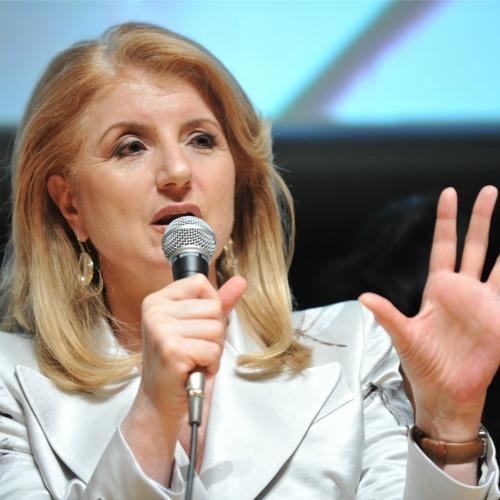BOB GARFIELD: And now for a few letters or, better yet, a few letter writers. They are Jeffrey Yuener of Toronto, Daniel Bennett of Washington DC, Dan Pfeiffer of Brooklyn and Ann Fuller of Juneau, Alaska. Thank you, one and all. Yeah, you’ve told us we are stupid humorless ideologically poisoned or wrong, but hats off to you; you did it by name, which places you in the minority of our commenters. Most are like our regular listener who calls himself “Listener.” He’s always the first to comment, and lucky thing he is, or his weekly dismissal of everything we do as hypocritical leftist propaganda might get lost in the shuffle of similarly anonymous polemic from the right and left.
“Listener,” whoever you are, your loyal opposition would be most welcome, if you’d just have the good graces to sign your name. Otherwise, you're just a graffiti artist, an annoying one. And when it comes to the nuisance of anonymous commenters, we are not alone in these thoughts, because dealing with the great unsigned is a chore.
ARIANNA HUFFINGTON: We have the most advanced pre-moderation technology, an algorithm that we call Julia and that we keep educating constantly to make it better and smarter, and 40 comment moderators to supplement the algorithm.
BOB GARFIELD: Arianna Huffington is publisher of The Huffington Post. As of this week, her publication has banned anonymous commenters from its pages.
ARIANNA HUFFINGTON: Because trolls, we are finding, have become more and more ingenious to bypass, you know, all our technologies and our comment moderators.
BOB GARFIELD: Tell me about these 40 flesh and blood moderators. I don’t know what you’re paying them, but it – it isn’t enough, can’t possibly be.
ARIANNA HUFFINGTON: It is, actually, very depressing, dealing with these comments day in and day out. And some of these comment moderators have been with us for years, because from the beginning it was very important to all of us at HuffPost to have a stable environment in which we could have robust conversations, people could disagree but stay civil. And, in fact, when we first launched HuffPost in May 2005 and we had five employees, I was actually paying my own daughters below minimum wage to help pre-moderate comments. So it was something which was important to me from the beginning.
BOB GARFIELD: Now, you mentioned that in spite of the filtering algorithm, which is state-of-the-art, and the, the 40 poor souls who [LAUGHS]
[HUFFINGTON LAUGHS]
- actually go through the comments one by one, that the haters and the trolls still manage to poison the well. Are you confident that they won't be persistent enough and clever enough to get around the new system?
ARIANNA HUFFINGTON: I don’t think we are going to eliminate the nastiness of the Internet, but I – if we very, very substantially reduce it, that will be a great achievement. It's actually part of a bigger trend that we see online, which is moving from the adolescent Internet to the grown-up Internet. You know, at the beginning, we were all excited about exploring everything, more like kids that were willing to experiment and try everything. And now, I think, people are looking for a more curated experience, for a more mature experience. And this is really another manifestation of that.
BOB GARFIELD: Now see, I hadn’t noticed that the Internet had gotten past its adolescence. It still seems pretty awkward and gawky and prone to misbehavior. What makes you so sanguine about its evolution?
ARIANNA HUFFINGTON: There is still plenty of evidence, Bob, to make you depressed about the Internet, but there is a lot more of a search for what is good, what is working. I mean, we are finding that people are more likely to share good things happening, examples of ingenuity, creativity, empathy than they are to share nasty things happening.
BOB GARFIELD: Last summer, you told me that HuffPost's comments are as important to the function of HuffPost as the content being commented upon. Does HuffPost still work, once the commenters are deprived of anonymity?
ARIANNA HUFFINGTON: We believe that it will work better, and that’s one of the reasons we are doing it. Because comments are so important to the DNA of The Huffington Post, we want to make sure that the environment in which to have these conversations is as civil and conducive to those kind of conversations as possible.
BOB GARFIELD: Arianna, I want to thank you very much.
ARIANNA HUFFINGTON: Thank you so much, Bob.
BOB GARFIELD: Arianna Huffington is the founder of The Huffington Post.

